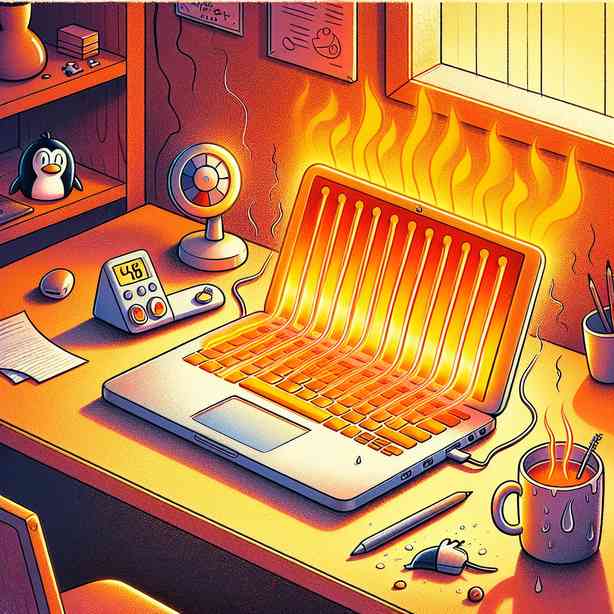
When your laptop feels like a heater, it can be quite concerning. The frustration of using a device that overheats is something many users experience at some point. Understanding why laptops heat up and how to mitigate this issue can significantly enhance your user experience.
Laptops are complex machines that generate heat as a byproduct of their operations. The central processing unit (CPU), graphics processing unit (GPU), and other components work together to perform tasks, but they also produce heat during this process. Typically, laptops are designed with built-in cooling systems, such as fans and heat sinks, to dissipate this heat effectively. However, there are instances when these systems fail to maintain optimal temperatures, leading to a heated device.
One of the primary reasons laptops overheat is due to dust accumulation. As laptops are portable and used in various environments, they often pick up dust and debris over time. This accumulation can block the cooling vents and fans, reducing airflow necessary for efficient cooling. Regularly cleaning the vents and fans can help ensure proper airflow and prevent overheating. A simple can of compressed air can be quite effective in removing dust without disassembling your laptop.
Another notable factor contributing to laptop overheating is the environment in which it is used. Laptops require a well-ventilated space to operate efficiently. Using a laptop on soft surfaces like beds or couches can obstruct airflow, forcing the cooling system to work harder. Ideally, laptops should be placed on hard, flat surfaces to allow for optimal heat dissipation. If you often work in a less-than-ideal environment, investing in a laptop cooling pad can provide additional airflow and help regulate temperature.
Software can also impact the temperature of your laptop. Background processes, high CPU usage, and demanding applications can increase heat generation. It is essential to monitor and manage the applications running on your laptop effectively. Using task manager tools can help identify resource-heavy programs that may be overworking the CPU, leading to increased heat production. Closing unnecessary applications, updating software, and even considering lighter alternatives for resource-intensive tasks can contribute to better thermal performance.
Batteries can be another source of heat issues in laptops. Over time, batteries can degrade and become less efficient, causing excessive heat during charging or when in use. If you notice that your laptop is often hot to the touch, it might be worth examining the health of your battery. Many laptops come with built-in battery diagnostics tools to assess battery health. If significant issues are detected, replacing the battery can lead to improved performance and decreased heat generation.
Additionally, cooling technology has advanced, and there are various aftermarket solutions available to improve your laptop’s thermal performance. These include external cooling fans, thermal paste for CPU and GPU, and even liquid cooling systems for high-performance laptops. While these solutions can be more technical, they are worth considering if overheating persists despite standard maintenance.
Laptop manufacturers also provide specifications and guidelines on how to operate their devices within safe temperature limits. It’s important for users to adhere to these guidelines to prevent damage caused by excessive heat. Overheating not only affects performance but can also lead to hardware failures over time. Keeping your laptop updated with the latest firmware and drivers can ensure that the cooling mechanisms are functioning correctly.
In case of persistent overheating issues, pinpointing the underlying cause may require professional diagnostics. Many PC repair shops can conduct temperature assessments and recommend the best course of action. If your laptop is still under warranty, reaching out to customer service can be beneficial, as they may offer repairs or replacements without additional costs.
In conclusion, while laptops are susceptible to overheating, understanding the causes and taking preventative measures can significantly enhance their performance and longevity. Regular maintenance, proper usage practices, and awareness of environmental factors are key to ensuring that your laptop remains efficient without becoming an unwelcome heater. By staying vigilant and proactive, you can keep your device cool and functional, ensuring a pleasant user experience for years to come.


